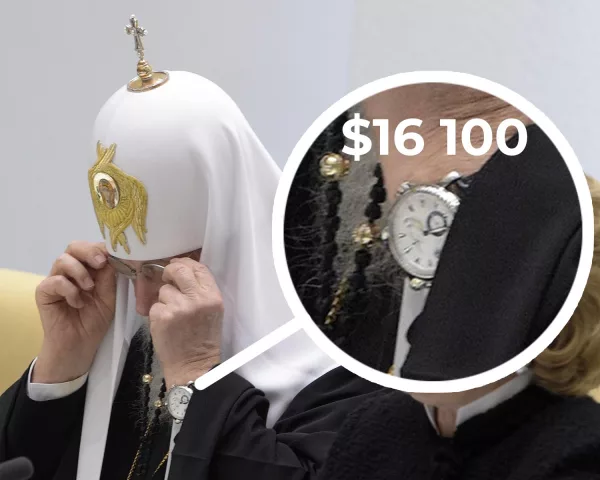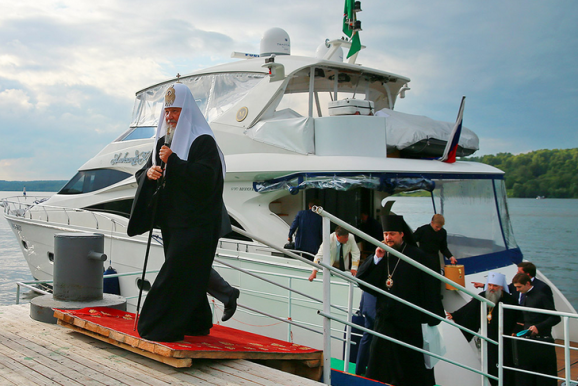During the 1990s, it became popular to follow the Orthodox Church in former CIS (Commonwealth of Independent States) countries, not just among religious people but even politicians, always lighting candles for the camera, and famous criminals seeking absolution for their sins. This was the time when the Russian Orthodox Church (ROC) started to make a lot of money and gained influence, an influence that was put to questionable use.

Among multiple suspicious activities of ROC, there was an incident involving the import of tax-free cigarettes under the church’s auspices. It was one of many that demonstrated the church’s disregard for ethical conduct. The person who planned this, Patriarch Kirill, is now the leader of the Russian Orthodox Church. And you can clearly see how rich Russian priests are – their Swiss watches, luxury residences, expensive cars with private drivers, and yachts. This is very different from the simple life they are promoting and supposed to be living.

The rise of Putin as the new president in the 2000s brought with it a wave of conservatism, with the church becoming a reliable ally to promote ideologies of confrontation with the “West”, a desire for a strong hand, and a restoration of imperial majesty. The church’s role became increasingly political, with Patriarch Kirill turning into a vocal propagandist of the ideology of the “Russian World.” He became an important political figure, who has been the head of the RPC since 2009.
Prescribed in the Russian Constitution provisions on the final separation of church and state turned into a fix in 2013. Russia introduced a criminal law responsibility for hurting the feelings of believers and those who are in the power of the church. A special place in his worldview takes Ukraine, where after all, as Russian propaganda says, Orthodoxy sacred cities such as Kyiv and Chersonese (Crimea) are parts of the Russian church.
The Ukrainian Orthodox Church of the Moscow Patriarchate, a local branch of the ROC, has been a significant tool in Russia’s influence over the Ukrainian people. No less important than Russian mass culture or “Gazprom”. The open campaign of priests supporting Viktor Yanukovych, the pro-Russian president who fled Ukraine, and their support of separatists in eastern Ukraine, are clear indications of the church’s political agenda. In 2014, the church supported separatists who took control of Crimea, Donetsk, and Luhansk. They were backing individuals like Igor Girkin Strilkov, a Russian citizen who was a separatist militant in Ukraine and also a former FSB agent. Suspiciously, he also attended Kyiv Pechersk Lavra, a cathedral that was under the Ukrainian Orthodox Church of the Moscow Patriarchate during the Revolution 2013-2014.
Not surprisingly after Russia’s full-scale invasion of Ukraine in 2022, the head of the ROC continued to support the war. This blatant disregard for peace and human lives is a disgrace to the church’s teachings and principles. As a result, the Ukrainian Orthodox Church of the Moscow Patriarchate was subject to searches by the Security Service of Ukraine and hopefully will be banned on its existence in Ukraine.
The ROC has always been a political tool of Russia. There are people in Ukraine who argue that banning their activities contradicts the principles of religious freedom. Personally, I think when the church becomes an instrument of political propaganda and clearly is an “enemy in your back”, it ceases to be a religious institution and becomes a political entity. Political entities must be held accountable for their actions. In order to keep the freedom of Ukraine and win the war against Russia, the Moscow Patriarchate should simply be banned and sent to prison, or exchanged for Ukrainian prisoners of war.
Featured photo: Alexey Nikolsky for AFP







